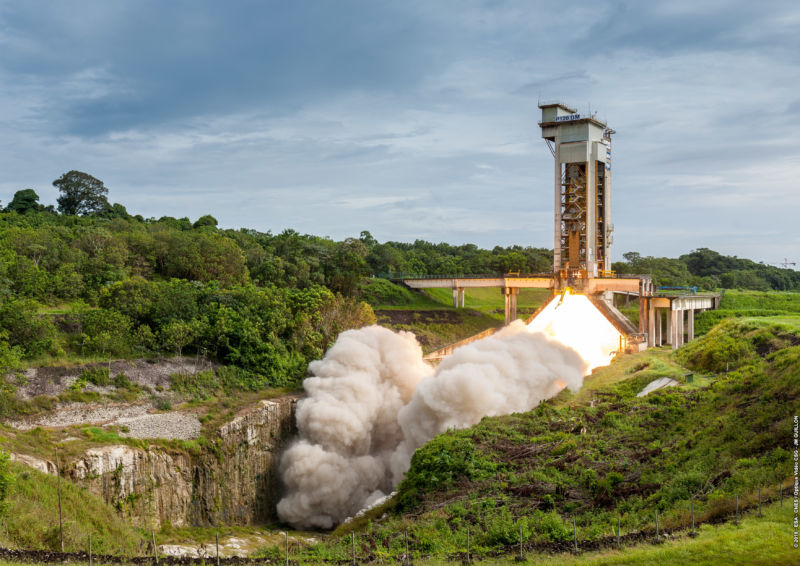

Europe’s major new rocket, the Ariane 6, is delayed again
source link: https://arstechnica.com/science/2022/06/europes-major-new-rocket-the-ariane-6-is-delayed-again/
Go to the source link to view the article. You can view the picture content, updated content and better typesetting reading experience. If the link is broken, please click the button below to view the snapshot at that time.

pas prêt —
Europe’s major new rocket, the Ariane 6, is delayed again
"This is a source of challenge in every launcher development."
Eric Berger - 6/16/2022, 7:04 PM

Europe's much-anticipated next-generation rocket, which has a roughly comparable lift capacity to SpaceX's Falcon 9 booster, was originally due to launch before the end of 2020.
The Ariane 6 rocket has subsequently been delayed a few times, but before this week the European Space Agency had been holding to a debut launch date before the end of this year. However, during a BBC interview on Monday, European Space Agency Director General Josef Aschbacher said the rocket would not fly until sometime in 2023.
On Thursday, during a background call with reporters, a senior European Space Agency official provided more information about the reasons for the additional delay.
Several issues
The source said an issue with the "cryogenic connection system" had been a critical item requiring a lot of focus for development efforts and a driver of delays. However, that test was recently completed, with the cryogenic lines carrying liquefied hydrogen and oxygen to the Ariane 6 rocket right up until liftoff, demonstrating a successful release at the correct moment.
Due to development issues, other critical tests have been long-delayed as well, such as a hot-fire test of the rocket's second stage, which features a single Vinci engine. The official said he expected the second stage test to occur soon at Lampoldshausen, Germany.
As is often the case, European Space Agency officials and the rocket's developer, Ariane Group, are also struggling to complete ground systems and flight software. "It's the ground systems coming together with the launcher, and they need to talk to each other in a very accurate way," the official said. "This is a source of challenge in every launcher development."
AdvertisementThe official declined to provide a new, specific launch target for Ariane 6's debut flight. (A separate source has told Ars the working date is no earlier than April 2023). The new launch target is expected to be revealed on July 13 during a joint news conference with European space officials.
The Ariane 6 program's management has also been streamlined, the official said. Development of the rocket has been funded by the European Space Agency, with Ariane Group as the primary contractor. The goal of reconfiguring the project's management is both to ensure the smoothest path to orbit, as well as prepare to "ramp up" production for the vehicle. So far, development of the Ariane 6 rocket has cost about 3.8 billion euros (US $4 billion).
Growing demand
Two events within the last few months have substantially increased demand for the Ariane 6 vehicle, even as the vehicle has faced more delays.
The Russian invasion of Ukraine in February led the European Space Agency to sever ties with the Russian space program for its use of the Soyuz rocket. This meant that European institutional payloads, such as the Galileo and Copernicus satellites, had to find other rides to space. (Europe's current mainstay rocket, the Ariane 5, has just five more flights left before it is retired in favor of the Ariane 6.) Instead of flying on the Russian-built Soyuz, most of these payloads are now waiting for the Ariane 6 to come online.
The second change was a blockbuster commercial order from Amazon, which purchased 18 flights of the Ariane 6 in its more powerful "64" version, with four solid-rocket boosters. Amazon needs to launch the majority of its Project Kuiper satellite Internet constellation in the next five years, so its commercial order likely has a limited lifespan—which probably can be rescinded if the Ariane 6 cannot fly frequently enough.
Recommend
About Joyk
Aggregate valuable and interesting links.
Joyk means Joy of geeK